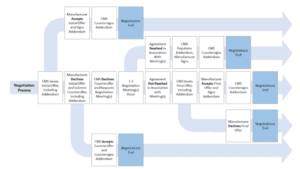Roadside emergency kit tips

2 minute read
Hazardous weather conditions can often lead to a higher chance of weather related vehicle crashes. Adverse weather can also be responsible for an increase in road closures and response time of emergency vehicles.
Whether you’re operating a personal vehicle, or your employees are driving company cars, being prepared is crucial. A simple way to improve preparedness is by having an easily accessible emergency roadside kit stored in your trunk.
What’s in an emergency roadside kit?
The basics
Your emergency roadside kit can be as basic or extensive as you like. If you’re unsure of what to include, your local mechanic may be able to point you in the right direction. Some basic items to consider are:
A shovel
Tow rope or chain
Booster cables
Fuel line antifreeze
A small tool kit
A fire extinguisher
To alert rescuers
If you’re in an accident or become stranded, having tools readily available to attract potential rescuers is vital. If you’d like to be prepared for this, consider including the following items in your kit:
Road flares or warning lights
Bright cloth to use as a flag
‘Call Police’ sign
Flashlight and extra batteries
If you’re trapped in your vehicle
In the winter, when temperatures drop, being stranded in your car can become even more perilous. Including these essential items in your kit can provide warmth and sustenance as you wait for help. Here are several items that might prove beneficial:
Extra clothing and footwear (Gloves, toque, jacket, etc.)
Blankets
Roadmap
Phone charger
Matches
Bottled water
A candle and deep can for when it’s lit
Emergency food (non-perishable such as canned fruit, nuts, candy, energy bars, etc.)
Can opener and pocketknife
First aid kit (Band-Aids, compression bandages, antiseptic liquid, etc.)
Yearly emergency roadside kit checks
After putting emergency roadside kits in both your personal and company vehicles, you’re not off the hook forever. It’s crucial to conduct annual checks on your kits to identify any items that need to be added or replaced. Maintaining an inventory that includes expiry dates for food, water, and medical supplies can help with tracking and ensure nothing is expired.
While these items may not help prevent incidents from happening in the first place, they can help make stressful situations more manageable.
Ensure you’re prepared
Despite your best efforts to prevent emergencies, unforeseen circumstances can still arise. That’s why it’s crucial to maximize your preparedness. One way you can do this is with the right business insurance. It can mean the difference between a temporary setback and long-term financial instability. From commercial auto insurance to equipment breakdown coverage, having the right insurance policy ensures that your business can continue to operate. To learn more about how insurance can help protect your business, visit our business insurance page today.
This blog is provided for information only and is not a substitute for professional advice. We make no representations or warranties regarding the accuracy or completeness of the information and will not be responsible for any loss arising out of reliance on the information.





